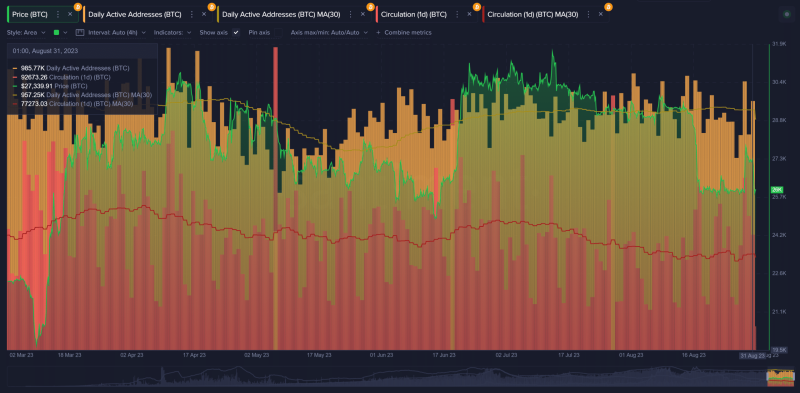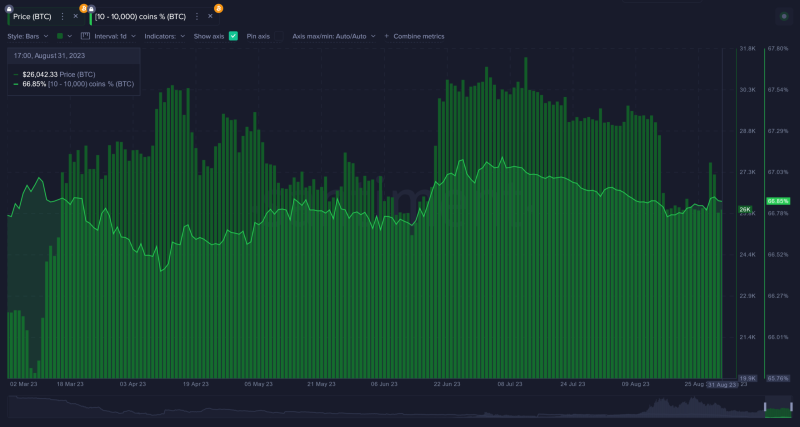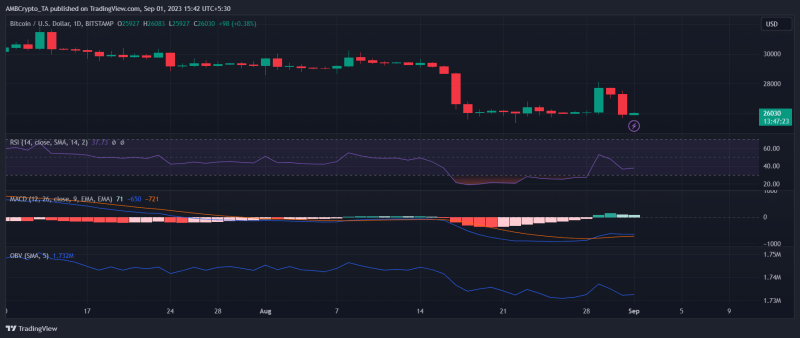Santiment’s analysis pointed out that shark and whale addresses accumulated quite a substantial amount of BTC in August as its price settled near $26,000.



- Over the last 30 days, BTC’s value has dropped by nearly 10%.
- Though a few metrics were bullish, market indicators remained bearish on BTC.
The month of August was somewhat of a bloodbath for Bitcoin [BTC] as it was rife with FUD and negative sentiment. This caused the coin to shed 10% of its value in the past 30 days.
Moreover, Santiment’s latest analysis pointed out that words like “bull trap” were mentioned on multiple occasions in August. The four largest instances of these surges in keyword mentions all occurred just before markets experienced a decline.
August was a rollercoaster ride for Bitcoin
Though bearish sentiment was dominant in August, Bitcoin held its ground well in terms of daily active addresses. Nearly 957,000 unique addresses interacted on the BTC network on a daily basis.
This high usage was a positive sign in a market that witnessed multiple price corrections.

Whale and shark activity in the last month was also an interesting metric to look at. Since 17 August, Bitcoin shark and whale wallets that hold between 10 and 10,000 BTC have added back 0.1% of all the existing Bitcoin into their collective wallets.
As per Santiment’s analysis, this equates to 26,299 BTC more, worth $687 million in just the past two weeks.

Will September be any different?
Though whale accumulation increased substantially last month, its effects are yet to be seen. BTC’s September beginning also did not go well, as its price chart remained red.
According to CoinMarketCap, BTC was down by more than 4% in the last 24 hours. At press time, it was trading at $26,020.85 with a market capitalization of over $506 billion.
Regardless, a few metrics were bullish.
As per CryptQuant, BTC’s exchange reserve was declining, meaning that it wasn’t under selling pressure. BTC’s aSORP revealed that more investors were selling at a loss, indicating a possible market bottom.
Moreover, BTC’s binary CDD was green. This suggested that long-term holders’ movements in the last seven days were lower than average.

However, a look at BTC’s daily chart gave reasons for concern. For example, Bitcoin’s Relative Strength Index (RSI) went sideways under the neutral mark, suggesting that the current price trend might continue.
Its MACD displayed the possibility of a bearish crossover, while the On Balance Volume (OBV) remained low, which were both developments in the sellers’ favor.


